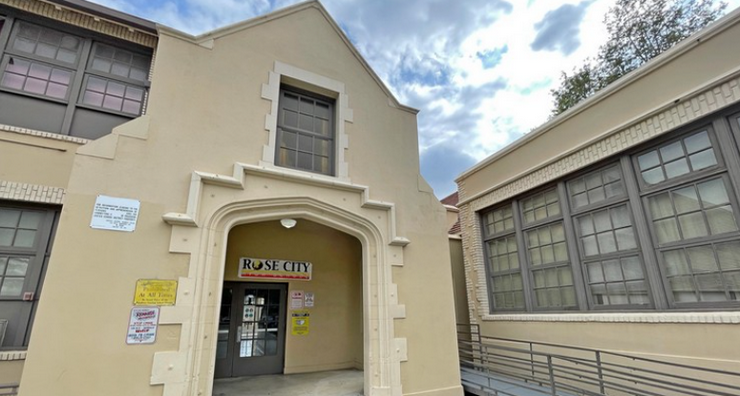
While the City of Pasadena, numerous other Southern California cities, and the state of California have all set themselves on a direct path to a $15 an hour minimum wage, that may still not be enough for California families to support themselves. In reality, 31 percent of California households do not have sufficient income to meet their basic costs of living, according to the Real Cost Measure, recently developed by The United Way. In Pasadena, the number is 33 percent.
The Measure estimates the amount of income required to meet basic needs for a given household type in a specific community. According to the Measure, there are 992, 214 households in Los Angeles below the Real Cost Measure.
This and other significant findings were delivered Tuesday evening by Henry Gascon, Manager of Program and Policy Development of United Ways of California, and author of “Struggling to Get By: The Real Cost Measure in California.” The study was presented at a “What’s Next?” forum on Minimum Wage presented by the American Civil Liberties Union (ACLU) Foothills-Pasadena Chapter at the Neighborhood Unitarian Church
The evening was moderated by ACLU Southern California Past President Michelle White, chair of the ACLU Economic Justice Committee.
Among the forum participants were Pablo Alvarado, director of the National Day Laborer Organizing Network and Pasadena City Manager Steve Mermell, who each offered unique perspectives on the upcoming impact of an increased minimum wage.
According to the Real Cost Measure, two full-time, minimum wage jobs no longer produce enough income to sustain a family of four. Two-person, two-child households with two full-time, minimum wage earners earning $33,280 in gross income still fall below the Real Cost Measure by $10,000 to $30,000, depending on where they live.
In addition, sixty percent of households led by a non-U.S. citizen struggle to make ends meet, the report said, and just over one-half of households with children under the age of six (51%) fall below the Real Cost Measure.
Much of Alvarado’s presentation addressed wage theft, an issue he has focused on for the past several years.
“When a restaurant worker doesn’t get their break, that’s wage theft. When a worker is not paid overtime, that’s wage theft,” he said. Alvarado pointed out that there is one wage theft enforcement office in Pasadena, and one in L0s Angeles.
“Compare this to the penal system, where they place all their resources into prosecuting a youth for stealing a can of beer,” he said, “and we can see that the system is still upside down.”
Said Alvarado, discussing the increased wage’s impact on low-wage construction and restaurant workers, “Sometimes I have to convince my people to fight for their wages. They think, for some reason, they don’t deserve them.”
Alvarado also announced that his group has come to an agreement with the President and CEO of the Pasadena Chamber of Commerce (Paul Little).
“We both believe that business growth in Pasadena is good for the city,” said Alvarado.
During the period leading up to the City Council vote to raise the minimum wage in Pasadena, Little was a vocal opponent of the increase, saying that it would damage small businesses in the city and would lead to job loses.
“The City’s economic dynamic should be a race to the top,” Alvarado said last night, “not a race to the bottom, and he [Little] agrees.”
Meanwhile, Alvarado continues to advocate for wage theft victims, meeting with various business owners throughout the City several times a week, he said, to resolve wage issues.
Newly-selected Pasadena City Manager Steve Mermell told the audience that the city is on track towards implementing wage theft enforcement and has placed a link on the City’s website for residents to file wage theft complaints: http://www.cityofpasadena.net/Planning/MinimumWageComplaintForm/
Mermell also told the forum that the City of Pasadena has issued paperwork to hire a community-based organization to help administer wage theft compliance and complaints.
He also outlined the path the minimum wage will take according to the current Pasadena ordinance, which implemented an immediate raise to $10.50 this year for companies with 26 or more employees, the next yearly raise to 12.50, another to $13.25, and then a “pause,” for City staff and the Council to examine the effects of the new wages on the local economy before continuing upward. Smaller employers are required to implement the raises a year later than their larger counterparts.
“I think the analysis will show that this is not the end of the world,” said Mermell, who explained that the City will look at a number of measurements to gauge the wage’s impact on the economy.
Explained Mermell, ‘We will ask, ‘Were there more business failures than usual?,’ which I don’t think there will be, and ‘are there fewer restaurants, fewer business licenses? Did businesses move?’” Mermell said he felt the relative growth in the city would remain the same.
While Mermell seemed to see the transition to the increased minimum wage as a natural transition, Alvarado said, “It was a tough fight, and it still is.”













 0 comments
0 comments


